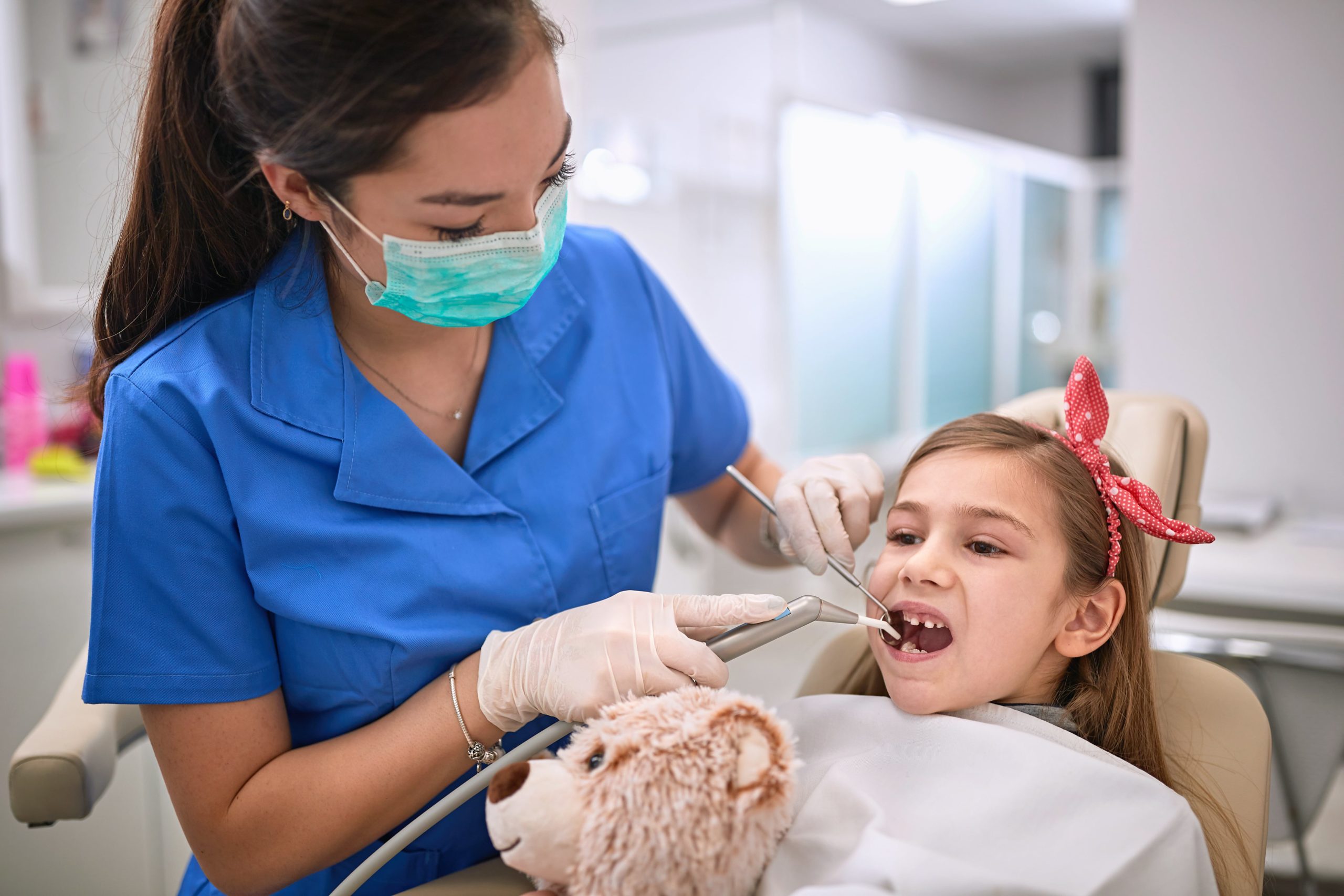Fluoride — a naturally occurring mineral found in bones, teeth, water, soil, plants, and more — has a wealth of dental benefits for children and adults alike, which is why you’ll often find dentists using it on their patients.
One of the most well-known benefits of fluoride is the remineralization of weakened enamel, which slows down enamel loss and helps prevent cavities. But the positive effects don’t stop there. Fluoride can also reverse early signs of tooth decay and prevent the growth of harmful oral bacteria.
How fluoride protects kids’ teeth:
It may seem counterintuitive to apply fluoride to young children’s teeth. After all, their baby teeth are just going to fall out eventually, right? Actually, starting fluoride treatments early on can help baby teeth stay strong as they develop, as well as pass along benefits to permanent teeth as they come in. If you’re still unsure, schedule an appointment with a Rio Grande Children’s Dentistry & Orthodontics pediatric dentist to learn more.
You can start working fluoride into your child’s dental care routine as soon as their first tooth erupts. For children under 3, apply a small smear of fluoride toothpaste to their teeth. As they get older, you can begin giving them a pea-sized amount of toothpaste to brush with.
Is fluoride safe for children?
There are a lot of misconceptions about fluoride. Many people think it is dangerous and can have harmful, long-term effects on their child’s teeth and overall well-being. In reality, there’s only one proven downside of fluoride intake: dental fluorosis.
Dental fluorosis sounds much scarier than it actually is. It is simply the appearance of white streaks on the tooth’s surface as a result of too much fluoride and has no impact on tooth function. It mainly occurs in children younger than 7, and preventing it is simple.
Keep track of how much fluoride your child is taking in by finding out if your city fluoridates its water supply and checking your child’s toothpaste to see if it has fluoride as well. Preventing fluorosis is not about eliminating fluoride altogether but finding the right balance. If your water supply is fluoridated, you can either limit how much tap water your child drinks or opt for a fluoride-free toothpaste.
What sets us apart?
At our office, we prioritize preventive dental care, achieving a remarkable 94% average rate of topical fluoride application, surpassing the national average, which, according to Medicaid data from 2018, was 19.4%.
We offer two forms of fluoride application tailored to different age groups and needs. For young children up to 5 years of age, we use Varnish fluoride, which is applied at the end of their dental exam. An advantage of Varnish is immediate adherence to the teeth, allowing children to eat and drink right away. It leaves a protective film on the teeth until brushed off in the evening.
For patients aged 6 and older, we use foam fluoride, applied for one to two minutes with a toothbrush, and removed with slow suction at the end of the exam. Patients are advised to refrain from eating or drinking for 30 minutes post-application to maximize its effectiveness.
Get in touch with our team today.
At Rio Grande Children’s Dentistry & Orthodontics, we want the very best for your child’s smile. If you want to learn more about the benefits of fluoride for your child’s teeth, schedule an appointment today. We make scheduling easy and provide affordable options so every child can get the high-quality pediatric dental care they deserve.


